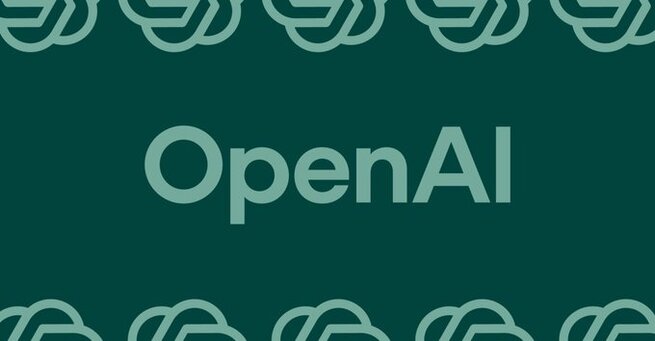
Looking for a powerful AI coding assistant that can generate, debug, and test code directly from natural language prompts? OpenAI’s new Codex AI coding agent might be exactly what you need. Designed to act as a “virtual coworker” for software engineers, Codex is now being integrated into ChatGPT for Pro, Enterprise, and Team subscribers. Whether you're asking, “What is OpenAI Codex?” or “How can Codex help developers write better code?”—this post covers it all.
OpenAI Codex is a next-generation AI coding agent that builds upon the company’s earlier Codex model, now refined into a more capable version called codex-1, based on the powerful o3 reasoning architecture. Unlike standard AI tools that merely autocomplete code, Codex actively interprets natural language instructions to write, test, debug, and suggest production-ready software—completing tasks autonomously within a sandboxed environment.
Codex can run tests, identify bugs, and optimize code structures—all without constant user input. During internal testing, engineers have already adopted it as their “morning to-do list” assistant, allowing multiple tasks to run in parallel without manual intervention.
Currently, OpenAI Codex is available within the ChatGPT web app for Pro, Team, and Enterprise users—offered at no additional cost during the preview phase. While there’s no public API or developer SDK just yet, OpenAI has confirmed it intends to monetize Codex once it better understands market demand.
Importantly, Codex is not connected to the internet in this early phase, which helps mitigate data leakage and potential security vulnerabilities. This makes it suitable for enterprise use cases where data privacy, cloud security, and compliance are paramount—especially for industries like fintech, cybersecurity, and software development.
OpenAI’s Codex is designed to complement, not compete with, other coding copilots such as GitHub Copilot, Cursor, or Windsurf—an AI startup OpenAI is rumored to be acquiring for roughly $3 billion. While those tools excel at fine-grained in-editor support, Codex operates as a broader agent capable of handling full development workflows.
Rather than focusing on line-by-line suggestions, Codex takes on multi-step tasks like setting up test environments, fixing logical errors, and reworking function structures—all through conversational prompts.
Codex isn’t just another coding tool. It’s the early prototype of what OpenAI describes as a “software engineer in a box.” Here’s what makes it stand out:
Natural language interface: Write prompts like “build a Python script to monitor server uptime” and Codex delivers.
Autonomous task execution: It can act on your codebase, suggest improvements, run tests, and even spot performance bottlenecks.
Enterprise-grade privacy: No internet access or external API calls during preview = safer testing environment.
Time-saving automation: Complete mundane or repetitive tasks while you focus on creative problem-solving.
These benefits make Codex ideal for DevOps teams, software consultancies, tech startups, and cloud-based SaaS platforms looking to cut engineering overhead.
According to OpenAI research lead Josh Tobin, Codex will continue to evolve with broader capabilities, longer-running task memory, and deeper codebase integrations. The roadmap likely includes IDE plugin support, code refactoring, multi-language fluency, and enhanced testing coverage. As Codex becomes more capable, OpenAI may also introduce tiered pricing for high-volume users or advanced agent behaviors.
With the company already positioning Codex as its next “flagship product,” it’s clear this AI agent won’t stay in beta for long. Whether you’re a freelance developer, enterprise CTO, or startup founder, learning to leverage Codex now could put you ahead of the curve.
If you're looking for an AI coding agent that does more than autocomplete—one that can actually think through tasks, execute them, and report back—then OpenAI Codex is worth trying. As AI becomes increasingly embedded into modern software engineering, early adopters of intelligent agents like Codex will likely see exponential gains in productivity, accuracy, and innovation.
For now, Codex is free to try for paid ChatGPT users, but it won’t stay that way forever. Jump in, experiment, and see if this virtual software engineer can become your team’s most efficient hire yet.
OpenAI Codex: ChatGPT’s New AI Coding Assista... 0 0 0 2 4
4 photos


𝗦𝗲𝗺𝗮𝘀𝗼𝗰𝗶𝗮𝗹 𝗶𝘀 𝘄𝗵𝗲𝗿𝗲 𝗽𝗲𝗼𝗽𝗹𝗲 𝗰𝗼𝗻𝗻𝗲𝗰𝘁, 𝗴𝗿𝗼𝘄, 𝗮𝗻𝗱 𝗳𝗶𝗻𝗱 𝗼𝗽𝗽𝗼𝗿𝘁𝘂𝗻𝗶𝘁𝗶𝗲𝘀.
From jobs and gigs to communities, events, and real conversations — we bring people and ideas together in one simple, meaningful space.

Comments